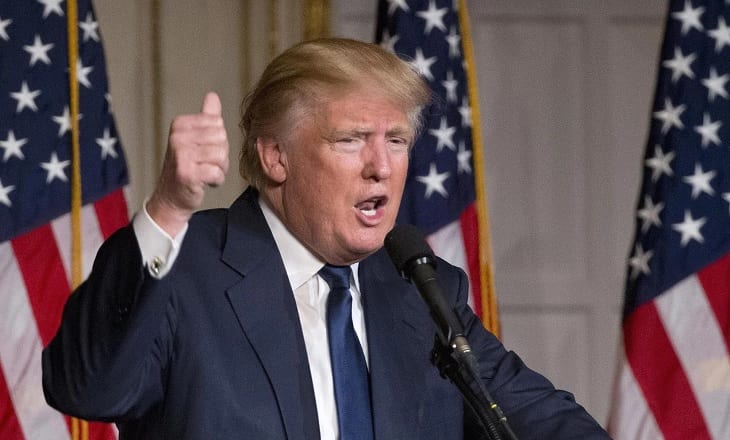It seems that Bitcoin has one more skeptic, one who had yet to register his exalted opinion until this past Thursday. The “Tweeter-in-Chief”, President Donald Trump, let it be known via his infamous tweeting channel that he is not a fan of cryptocurrencies. His scorn also included Facebook’s Libra project: “If Facebook and other companies want to become a bank, they must seek a new Banking Charter and become subject to all Banking Regulations, just like other Banks, both National […] and International.”
As has been the case on several other issues, this president is sadly misinformed. By taking deposits, Facebook is not a bank. It must, however, register as a money services business with the Financial Crimes Enforcement Network, which, incidentally, it has in preparation for loading wallets with customer funds. If Libra ever wishes to make loans, then, yes, it must have an appropriate banking charter and comply with applicable banking laws and regulations.
But Trump did not stop there. He quickly jumped upon the skeptics’ bandwagon, so to speak, and spouted the old diatribes about cryptos being nothing more than an enabler of criminal activities: “Unregulated Crypto Assets can facilitate unlawful behavior, including drug trade and other illegal activity.” For some reason, he neglected to mention money laundering, the one issue that global government officials from other locales have always managed to cite first and foremost. Could it be that he and his personal real estate empire are a bit more sensitive to this particular topic?
And then, of course, he had to speak to the strength of the U.S. Dollar, odd, because he has been pressuring his Fed chairman to reduce interest rates to weaken the greenback to spur trade exports, but that is another issue:
We have only one real currency in the USA, and it is stronger than ever, both dependable and reliable. It is by far the most dominant currency anywhere in the World, and it will always stay that way. It is called the United States Dollar!
Since Trump had never spoken out before about his distain for all things crypto, the question was why now? What suddenly drove this man over the edge, so to speak? He has never been a fan of Facebook. He has ranted about the social media’s proclivity of blocking right-wing figureheads and their hate-speak, a practice that other social media platforms have also adopted.
As for Trump’s henchmen, mixed messages have been the order of the day, not at all surprising from this disjointed administration. Steven Mnuchin, his Treasury Secretary, has spoken on occasion for the need of strict regulations in the crypto arena. He has pressured the Financial Action Task Force and the G20 to get tough:
We will not allow cryptocurrency to become the equivalent of secret numbered accounts [and] we will allow for proper use, but we will not tolerate the continued use for illicit activities.
Not everyone in this man’s White House is against innovation, cryptocurrencies, and blockchain technology. For example, Mick Mulvaney, acting White House Chief of Staff, has sung an opposite tune and suggested that more leniency in the area of regulations is the proper stance to take, if the economy is to benefit from the entrepreneurial spirit:
If we over-regulate and discourage people from entering the marketplace, that has bad consequences.
Initially, Bitcoin held its market positioning, following Trump’s all out assault. It was testing $12,000 once more, but as the weekend drew near, it weakened and suddenly plummeted below $10,000, the first time it has been so low since four weeks back. The fall could have been ordinary profit taking, but there has been after-the-fact speculation that Trump, if he was so moved to demonstrate his executive power, could ban cryptos altogether. In any event, he is more than likely pounding his chest over the recent drop in BTC valuations, having had his ego rubbed nicely by the delayed market reaction.
As for the potential of a crypto ban, Alex Kruger, an economist and trader, remarked that the law would most likely prevent him from acting so cavalierly. He could, however, make the situation much worse:
Trump could also go after fiat onramps, by simply forbidding banks to service crypto exchanges, or by requiring banks to not service exchanges unless conditions XYZ are fulfilled and make that practically impossible.
China and India have followed this example, but Kruger summarizes that the feasibility and probability of a crypto ban in the U.S. by Executive Order is unlikely. Trump would have to convince Congress to ban cryptos, and lawmakers could always overturn any order from his office.
